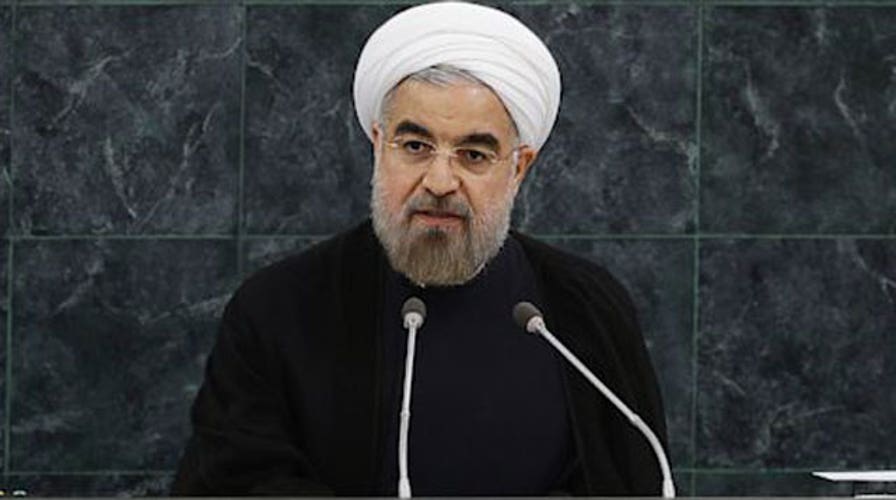Nuclear talks with Iran falling apart as deadline nears
Clock ticking on agreement to limit Iran's nuke program
U.S. officials failed to make major headway toward a deal to limit Iran’s nuclear program Monday as talks are set to expire in less than two weeks.
High-level discussions took place in Oman among Secretary of State John Kerry, European Union policy adviser Catherine Ashton and Iranian Foreign Minister Javad Zarif. Officials did not confirm how much progress, if any, was made.
Concerns still remain about what Kerry described as “real gaps” between world powers and Iran.
Iran's official IRNA news agency reports that a senior nuclear negotiator, Abbas Araghchi, says "we are not in a position to say that we have made progress." However, Araghchi added that Iran is hopeful to reach an agreement before the dateline, IRNA reported.
The Oman talks were widely seen as a sort of predictor for the outcome Nov. 24, when the negotiations expire. Two senior State Department officials traveling with Kerry described the meetings as "tough, direct and serious" but still held out hope that a deal could be secured.
If a deal is reached, it would set a new relationship between the U.S. and Iran after a generation of mistrust. A deal could also dissipate fears over Iran and the nuclear bomb.
Asked at a brief photo opportunity Monday afternoon if they were making progress, Zarif responded: "We will eventually."
"We are working hard," Kerry added.
But the two sides are not yet there.
State Department officials said it is clear there is still work to be done before any sort of compromise can be reached. Kerry did extend his stay in Oman several hours in hopes to get closer to a pact.
Kerry headed out to Beijing, to join President Barack Obama and National Security Adviser Susan Rice at the annual Asia-Pacific Economic Cooperation summit Tuesday afternoon. The State Department officials said Kerry plans to brief Obama and Rice about the discussions in Oman. "A lot will be determined there, in terms of next steps for us," the second State Department official told reporters traveling with Kerry.
A deal would make Iran limit its uranium enrichment level, which would make incapable of building the big bomb. In return, Iran seeks freedom from sanctions imposed by the U.S. However, Congress would have to approve of such actions.
For years, Iran hid some of its nuclear facilities and blocked inspector's access to others, raising widespread alarms about its intentions. The sanctions — imposed by the U.S., EU and the U.N. Security Council — aimed to punish Tehran for its covert nuclear program.
Israel remains bitterly skeptical about Iran's intentions, and the negotiations have strained relations between the Obama administration and Washington's closest Mideast ally.
Citing reports that a deal is close at hand, Israeli Prime Minister Benjamin Netanyahu on Monday announced he would ask the negotiators' top diplomats to resist any agreement that would allow Iran to become a nuclear power.
Kerry spoke early Tuesday with Netanyahu, but the State Department officials refused to discuss why the Israeli prime minister believed a deal was imminent. The officials said Kerry also condemned comments posted this weekend on the managed Twitter account of Iranian Supreme Leader Ayatollah Ali Khamenei that called for Israel's destruction. His feed also tweeted various posts about the negotiations — including one detailing Iran's "red lines" of things it could not accept — while the Oman talks were ongoing.
The Associated Press contributed to this report





